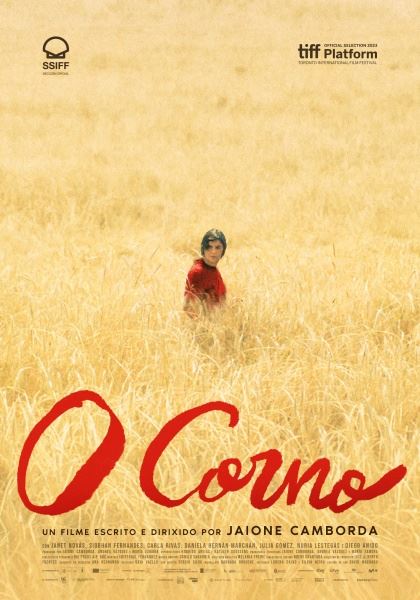“O como”, the strength of sorority
Euskaraz irakurri: “O corno”, ahizpatasunaren indarra
O Horn, director Jaione Camborda’s second feature, opens with a sweaty, painful, realistic birth; The first ten minutes of the film chosen as the winner of the Zinemaldia Golden Shell by the official jury chaired by filmmaker Claire Denis are crude in the physical representation of that birth, and that harshness does not leave the story during its 103 minutes of duration: the powerful Or how It exudes reality in its exposition of the force of nature, life and our animality, and conveys warmth in its portrait of humanity and sisterhood.
The protagonist of the film is María (played by the dancer Janet Novas, an impeccable choice for such a physical representation), a shellfish harvester who, in the early 1970s, in the throes of Franco’s regime, helps other women materialize their dreams. ability to be mothers or assists them, through infusions of ergot (called hornhorn in Galician), in her decision to terminate the pregnancy.
At one point, as a result of a tragic event, María will be forced to flee her Galician village to take refuge in Portugal (take refuge, as long as we agree that a working woman could find a safe place in the dictatorships of Spain and Portugal in the 1970s), and only sisterhood, the network of care woven by women, will help her in that objective; From the imposed clandestinity, the help of women who live on the back of power, money and authority, will be the only support on which to take the first step towards a new path.
Only with the help of other women will the protagonist have the opportunity to start over (Because it starts every day It was titled a novel written about abortion, which the film also deals with, in 1968 by Ramon Saizarbitoria; History is cyclical, if it is not transformed from the base). As a character reminds María at one point in the film, only thanks to that solidarity will she receive the possibility of having a new name, whatever she wants, “because what exists now is this. That no longer exists.” .

‘Or as’
The winner of the Golden Shell offers the dramatic tension of a road moviethe search for beauty (excellent use of light, in some beautiful sequences), the power of physicality (the woman’s body and the wild landscape make their way onto the screen) and the desire to both account for oppression towards women and influencing their time.
Or howfilmed in Galician, can be seen in Hego Euskal Herria cinemas starting October 11.
Source: Eitb
Bruce is a talented author and journalist with a passion for entertainment . He currently works as a writer at the 247 News Agency, where he has established himself as a respected voice in the industry.











